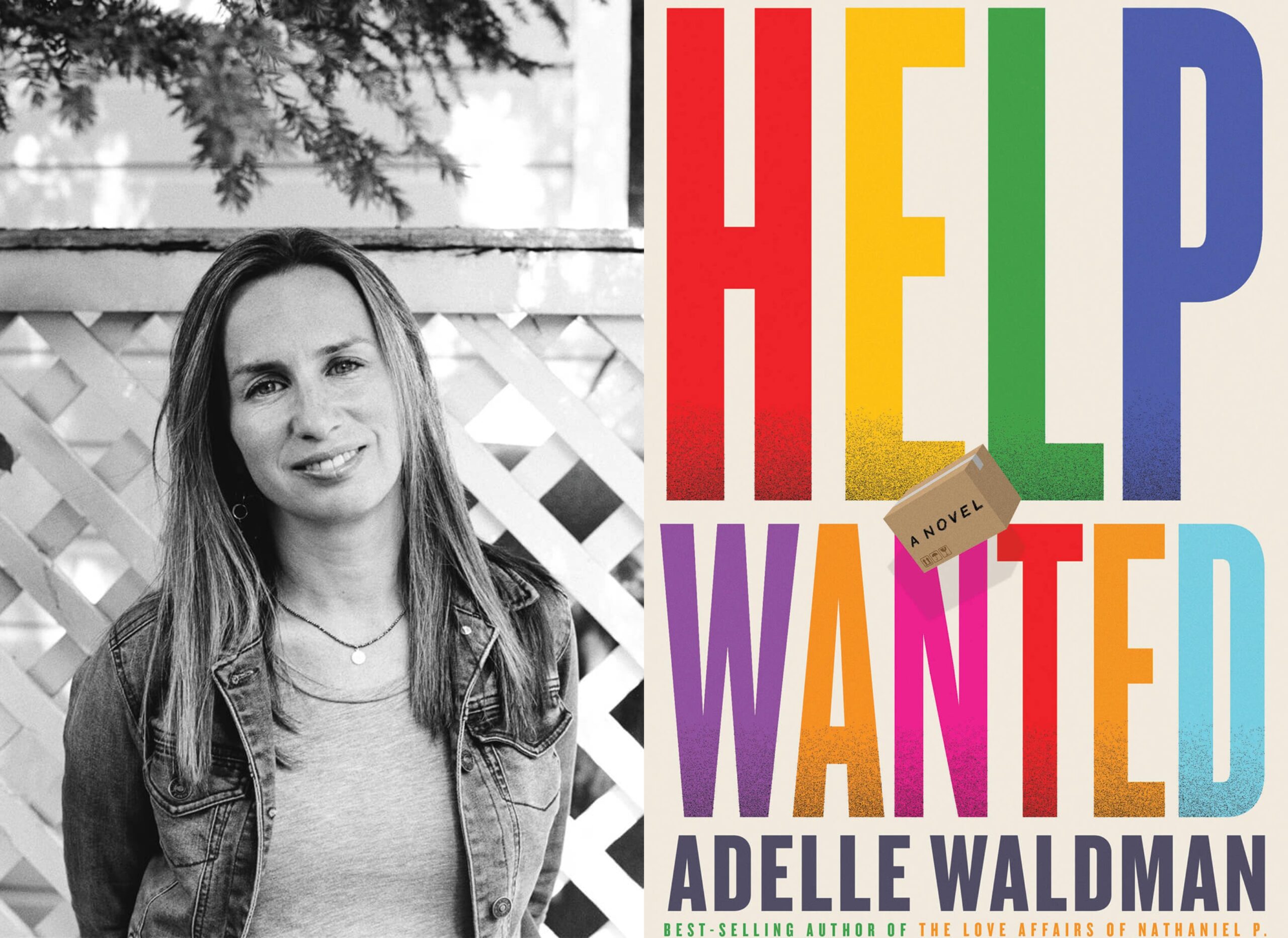Arts & Culture
Pikesville Native Adelle Waldman Talks New Novel, an Ensemble Portrait Set in a Big-Box Store
‘Help Wanted’ reveals working-class characters’ personalities and precarious economic lives.

Adelle Waldman’s first novel, The Love Affairs of Nathaniel P., was widely acclaimed and named one of 2013’s best books by NPR, The New Yorker, The New Republic, The Economist, and The Guardian, among others.
A Pikesville native and Friends School of Baltimore graduate, Waldman was a writer living in Brooklyn at the time and set her portrait of a young novelist navigating New York’s hip literary and dating scenes in a world in which she was familiar. Waldman heads into new terrain in her second novel, Help Wanted, widening her lens, as well.
In the decade after Nathaniel P., Waldman moved from Brooklyn to upstate New York, had a daughter, continued to write—and took a job unloading boxes at a big-box store from 4 to 8 a.m. for six months. The product of that experience, Help Wanted is an ensemble portrait set entirely in Town Square, a Target-type store where its working-class characters’ personalities and precarious economic lives are slowly revealed.
Beyond the employees’ unspoken camaraderie and wisecracks, the underlying story is both straightforward and complicated—the workers simply hope to land enough hours each week to maintain something resembling a stable existence.
Two questions. How’d you get the job? And when did you tell your fellow pre-dawn co-workers you were a writer?
When I applied, I put that I graduated from college, but I presented myself as a mother with a young child looking for something part-time, which was true. There was no question [about] previous books published. I put off telling people until I felt if word got out and I got fired, I’d be fine—four months. One coworker got on his phone and looked up my previous book and was like, “Holy shit, guys. She’s not lying.” They thought it was kind of cool. They were supportive and I got to be pretty good friends with them.
Do you consider the new novel dystopian?
Yes and no. It was important to me that it was accurate. I was careful not to exaggerate anything, not to caricature anything. I didn’t want to make a comically evil employer. I wanted to make a realistic employer and to depict the pressures the employer is under. It’s not as if the company sets out to screw employees for fun. It’s a systemic issue. [The company] has its own pressures in terms of competing with online retailers, and what shareholders and analysts want, and what the business press wants—all of which “permits” not treating its employees well.
But I do actually think it’s dystopian to an extent, by which I mean, the world we live in has dystopian elements that those of us in the white-collar workforce are insulated from.
The novel is set in Pottertown, NY. I grew up between Pottstown, PA, and Pottsville, PA, and have to ask, is the name a nod to…
Yes, I chose Potterstown as a reference to It’s a Wonderful Life. Potterville is the bad version of the world that happens if Jimmy Stewart’s character had never been born. Bedford Falls is the good version. That was my oblique reference.
Do you have a favorite character?
I am fond of all the characters [laughter]. They’re each, to me, touching. I sometimes think of the book as having seven little Deaths of a Salesman in it. I do like Raymond. He’s got this eye condition that is disconcerting for people. He’s smart, but has this congenitally low self-esteem and so he doesn’t necessarily impress other people. There’s something about that personality type that I feel sympathy for—someone who is under-appreciated because they don’t have the self-confidence and self-presentation to match their actual abilities and skills.
Near the end, there is an exchange between two female corporate executives that underscores everything so well. One says the low-level employees “aren’t like you and me” and handle negative change well because they’re accustomed to it. The other patronizingly describes them as “resilient.”
Katherine and Janine are saying things that are not shocking for people from a certain world to say or think. But in the context of reading the book, when you’ve spent so much time with these characters and you suddenly hear how these executives speak about them: “Oh yeah, some people, their lives are chaotic. That’s just how they are”—you’re like, “What?”